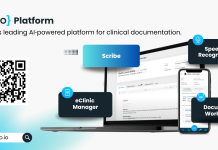Here, Jing Walker, Digital Advisory Consultant at UBDS IT Consulting Limited explores the challenges facing local regional governments and how the deployment of Hackathons can help them on their digital transformation journey
- Local regional governments are facing unprecedented pressure to deliver services, calling for innovative thinking on productivity and effective demand management.
- Hackathons prove to be an effective and cost-efficient catalyst for local authorities’ digital transformation journey.
- Collaborative, user-centric and agile methodologies should be adopted to quickly unlock value.
Challenges facing local regional government
Local regional governments are responsible for providing a range of services that impact everybody in local communities and change lives for the better. However, councils are facing unprecedented pressures from funding cuts and workforce shortages in tandem with increasing demand for their services.
To tackle this mounting pressure, local authorities are exploring different ways to achieve efficiency through re- engineering their current way of work and looking at technology to help solve their challenges.
A common resource-intensive business process
The Freedom of Information (FOI) service provides any individual or organisation access to information held by public authorities that may be of public interest. The authority is legally required to respond to FOI requests within 20 working days, by either providing the information requested or an explanation why the information cannot be disclosed due to exemption.
This is not a small task. There are countless volumes of data across public sector organisations, such as local councils, adult and social care, and the NHS trust, created and archived in different departments and in different ways. On average, Information Governance (IG) teams are dealing with hundreds FOI requests per month. Research shows that the number of FOI requests received by governments has almost doubled in the past 10 years and is projected to increase year on year.
A hackathon to harness technology and spark innovation
Hackathons provide an excellent platform to harness technology and drive innovation, as they bring together individuals from diverse backgrounds and experiences to define complex problems, ideate, and tackle challenges in a focused and fast-paced environment.
In December 2022, Microsoft and UBDS co-hosted a Freedom of Information Power Platform workshop. Three participating local councils in Greater Manchester collaborated to ideate an innovative solution to a common challenge facing all councils. Attendees from Information Governance, IT, and Digital Transformation teams were brought together in one room.
The workshop provided an ideal opportunity for the local councils to break silos, brainstorm, and prototype an application in just a day, facilitated by an experienced digital advisory team from UBDS.
The UBDS team used the Design Thinking approach to structure and facilitate the Hackathon. Rooted in a human-centric and problem-focused approach to problem solving, various aspects such as request triaging, review and validation were looked at holistically from a user perspective to better understand the current state and refine the problem statement, before sparking innovation and starting the development of a fit-for-purpose application.
Three principles to catalyse innovation for local regional government
Are you wondering how to best catalyse innovation? Here are three principles that, when synergised, work best to help local authorities transform their services at pace.
Focus on the right problem through the user’s lens
The workshop followed a user-centric approach by understanding the user journey, mapping out touch points, and empathising with their frustration. This ensured that the ‘quick win’ focused on the problem that is most worth solving; and the solution in the making would provide an intuitive experience.
As engagement deepened, we grew to understand that although the compliance rate with the statutory 20 days deadline is high, there is very hard work behind the scenes, as councils need to navigate their way through very frustrating processes such as:
- Ambiguity in ownership of the information and difficulty in locating the right information.
- IG teams need to manually pick up requests, find the correct resource or resources for the information, send reminder emails, collate information, and generate responses.
- As staff struggle to effectively communicate and collaborate within and across departmental boundaries, productivity decreases, timescales shorten, and frustration goes up.
2. Deliver the value quickly
Lack of digital skills and talents, limited budgets, legacy systems, and resistance to change are some of the key barriers to innovation commonly seen at local authorities. The ability to demonstrate value quickly and visibly through prototyping can address a lot of the risk-aversion and hesitancy when it comes to digital transformation. Power Platform, Microsoft’s low-code platform, is certainly one effective way to lower these barriers as it allows users to rapidly prototype without extensive coding skills.
The UBDS Power Platform solution specialists were in the workshop, listening to the challenges, understanding the user requirements, and asking questions. They were able to start wireframing a solution using Power Apps, Power Pages and Power Automate, rapidly building a prototype during the workshop, with iterations throughout the day based on user-feedback.
The engagement did not stop as the event came to an end. Two playback sessions followed the hackathon to collect feedback and make any changes required. Within two weeks, the local councils had a solution they could put into their development environment, test, and finalise.
3. Co-create with an agile mindset
The agile principles go hand in hand with rapid prototyping and help to further enhance innovation. Embracing an agile mindset helps to foster a test- and-learn culture, where teams can experiment and adjust in real time.
The FOI app is now available to all local authorities and is a prime example of how harnessing technology through collaborative efforts and a Design Thinking approach can lead to innovative solutions that can quickly drive positive change.
If your organisation is looking to solve problems rapidly, with a human-centric mindset and the world’s leading technology, get in touch with the UBDS team.

This work is licensed under Creative Commons Attribution-NonCommercial-NoDerivatives 4.0 International.











